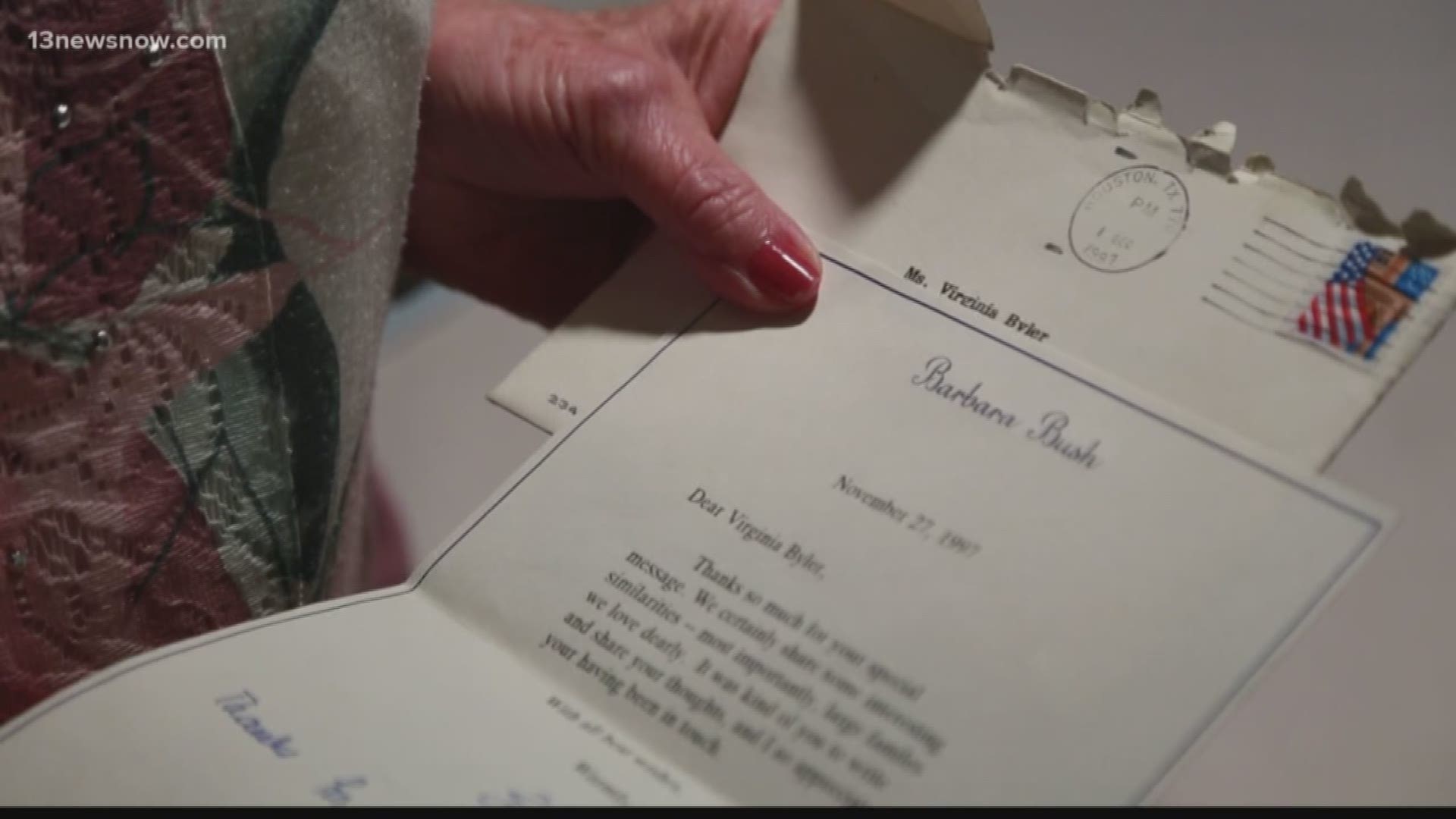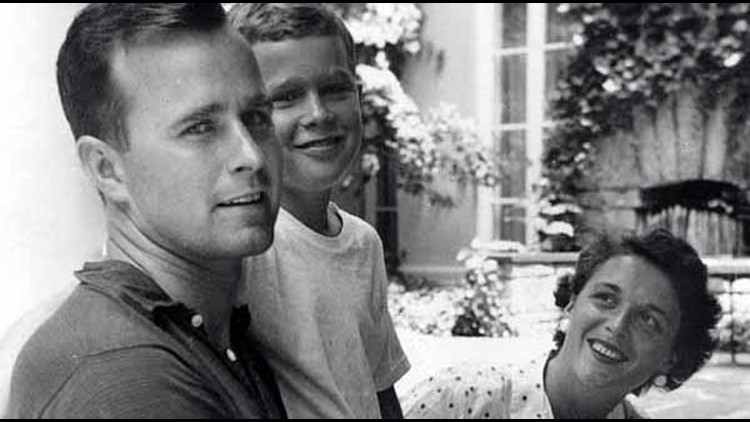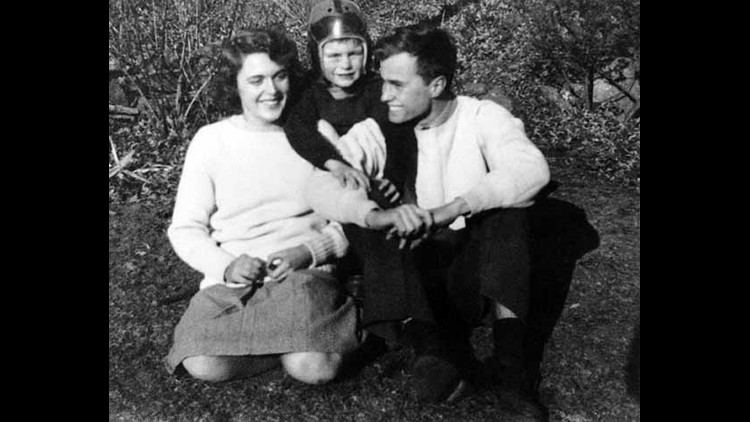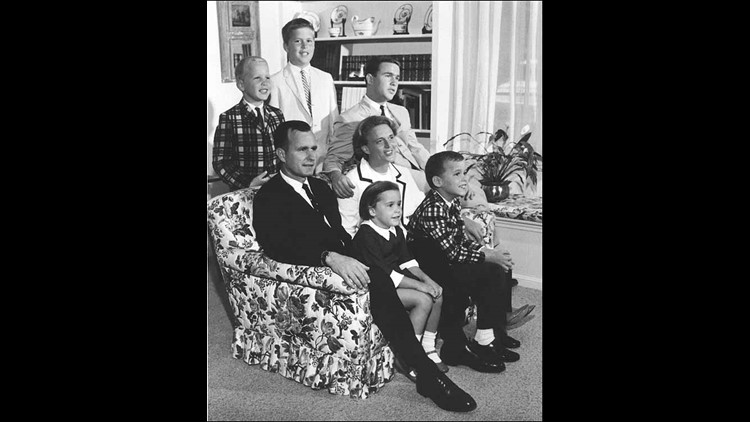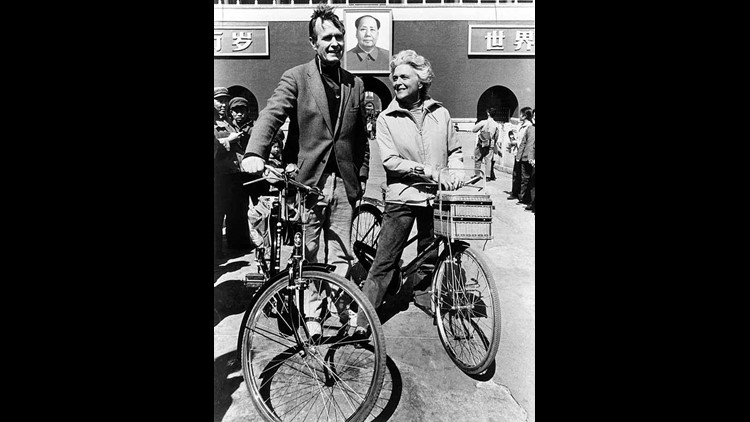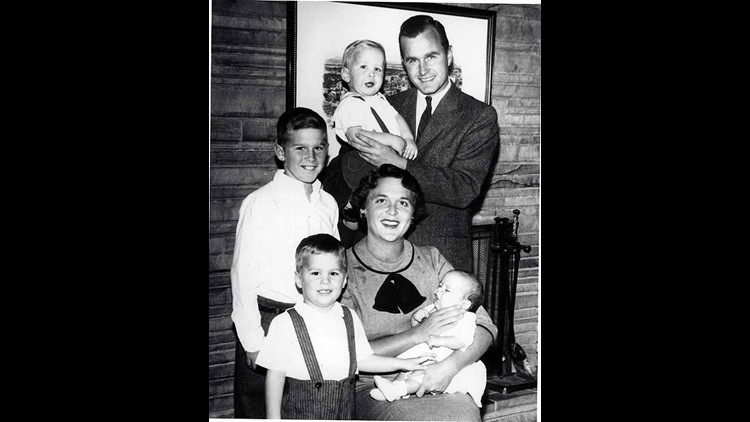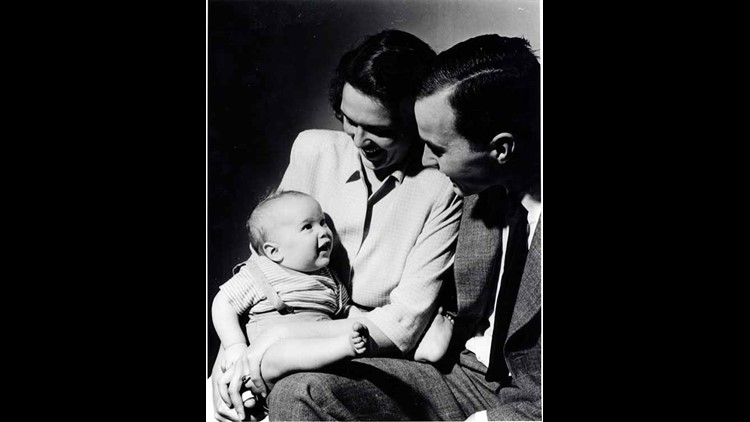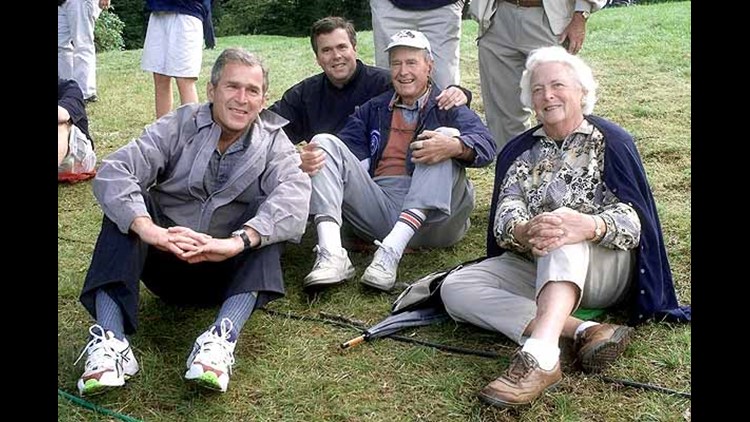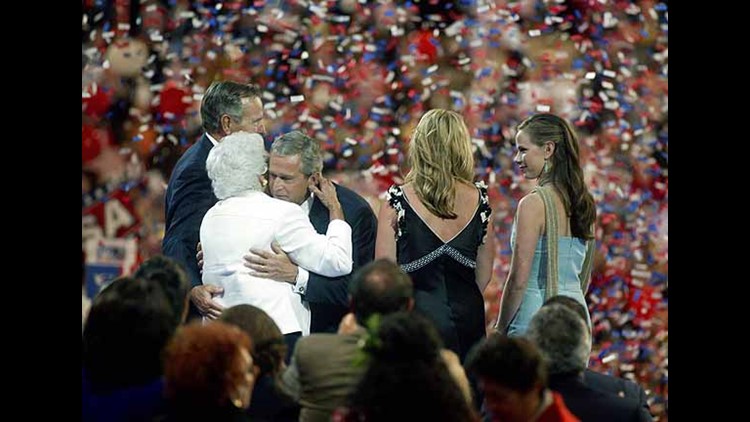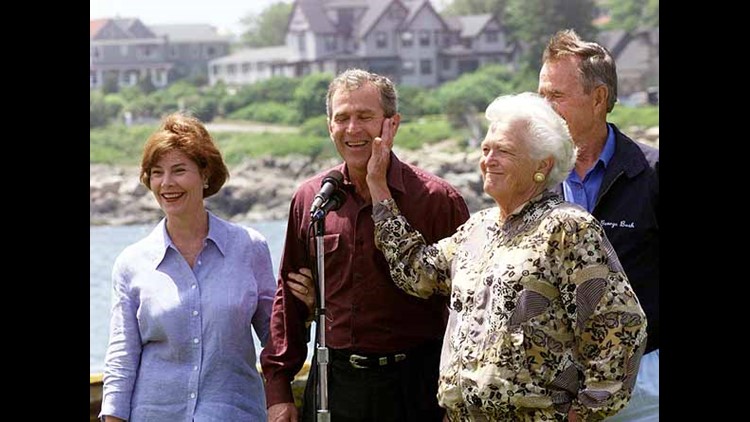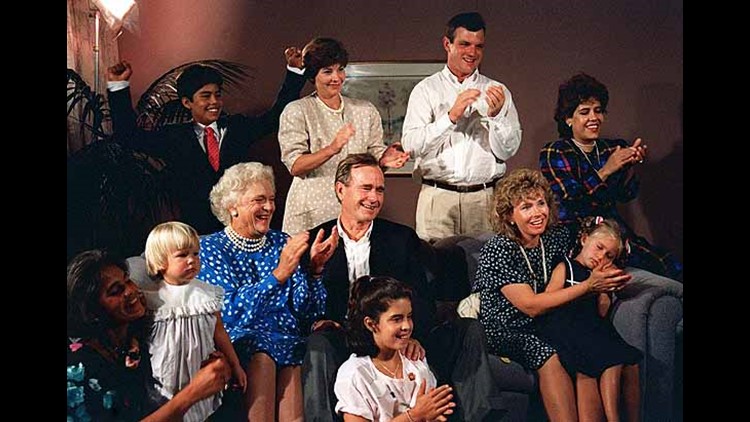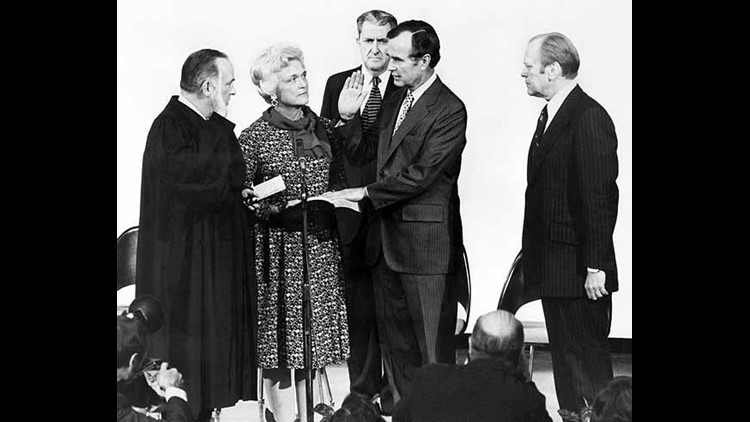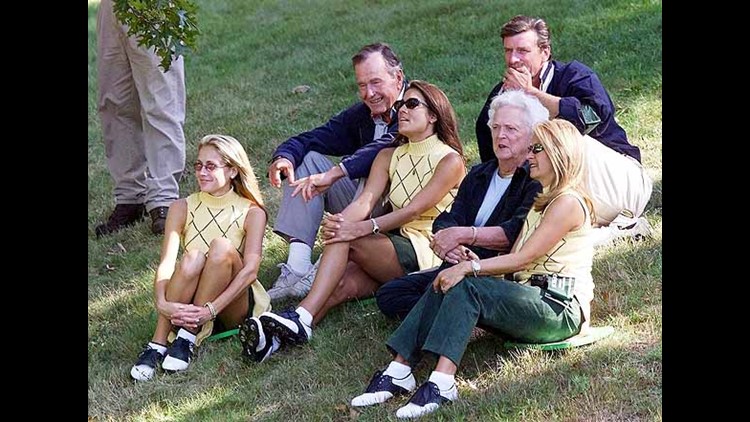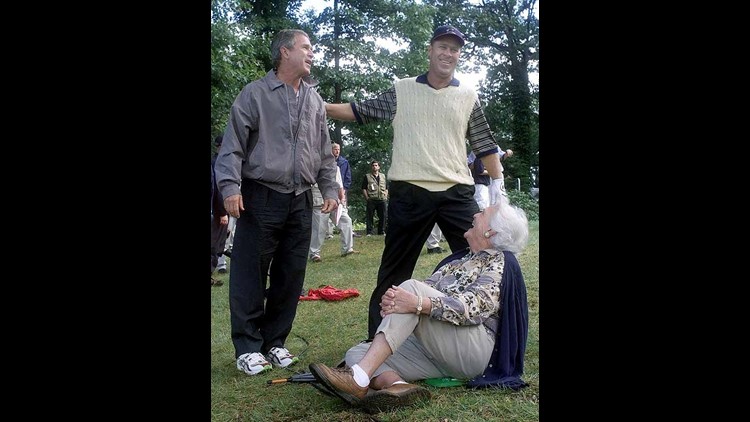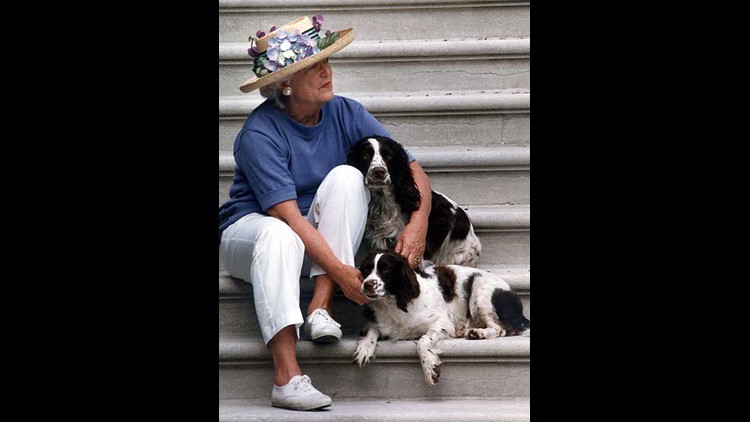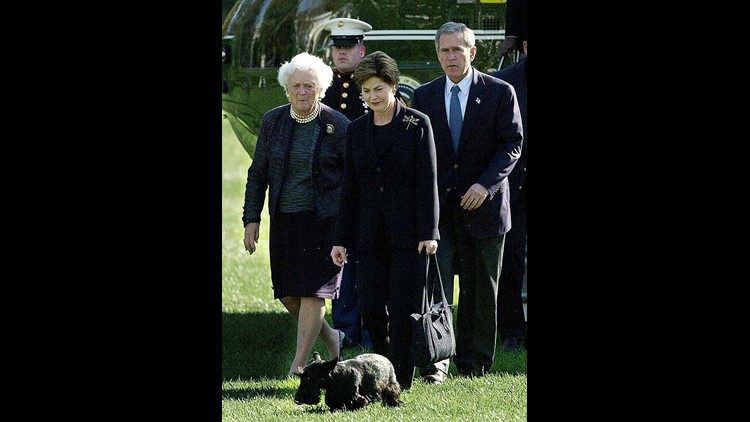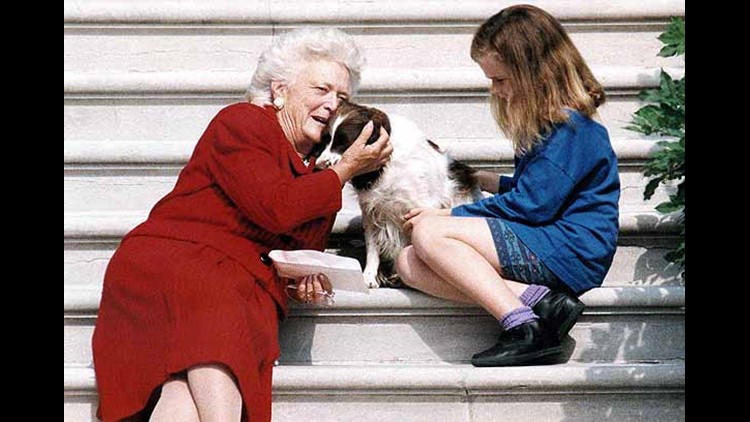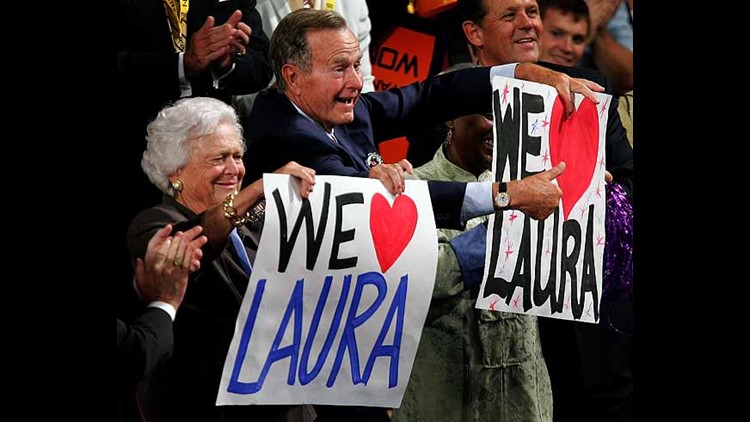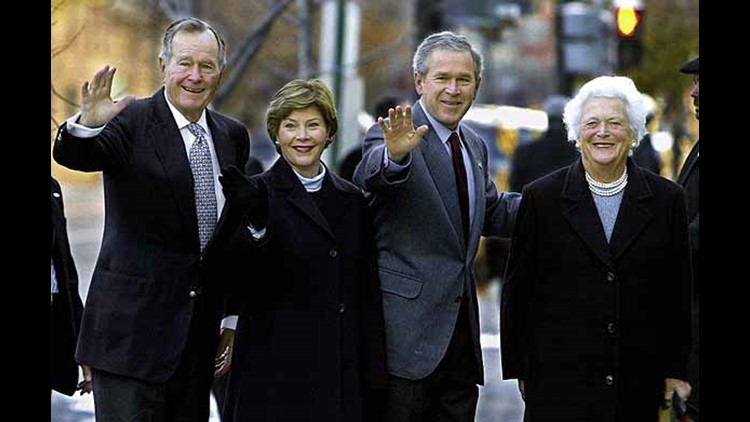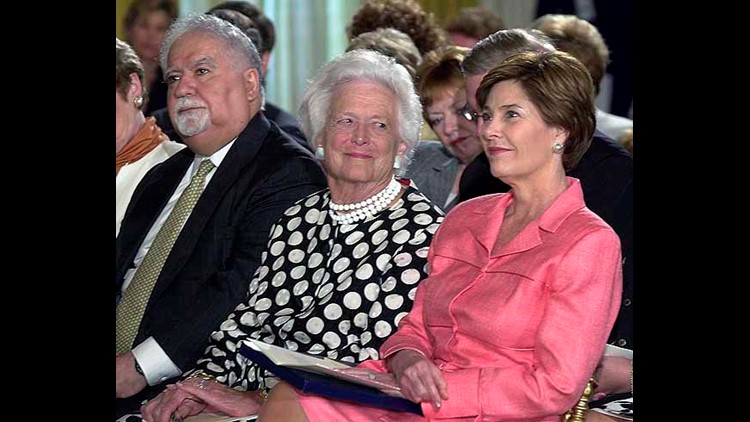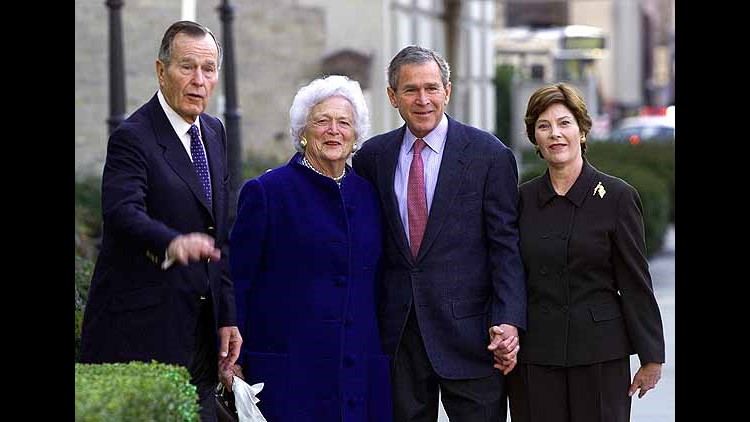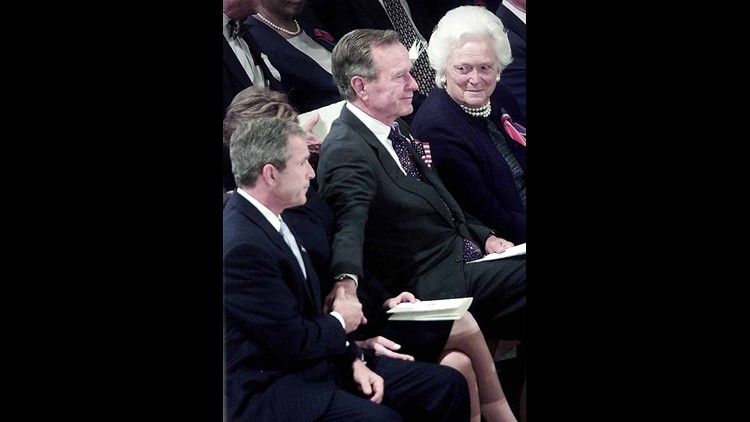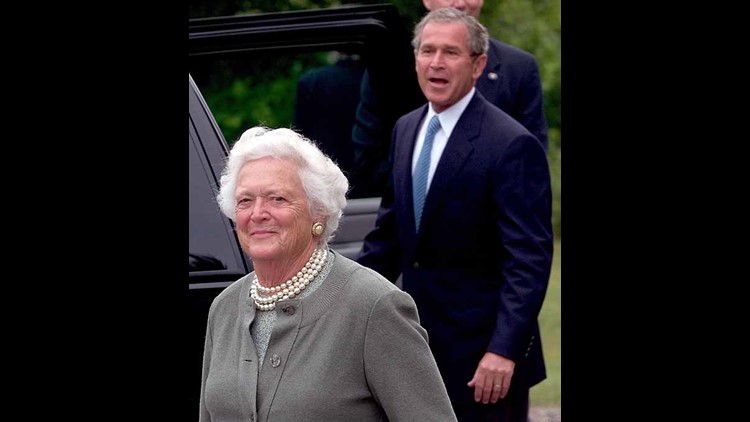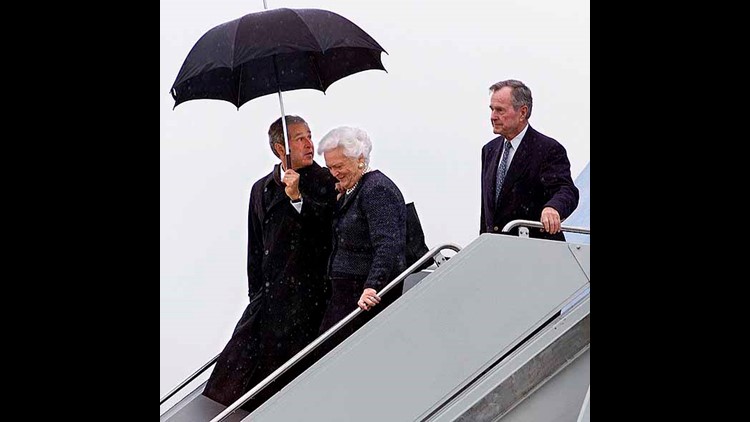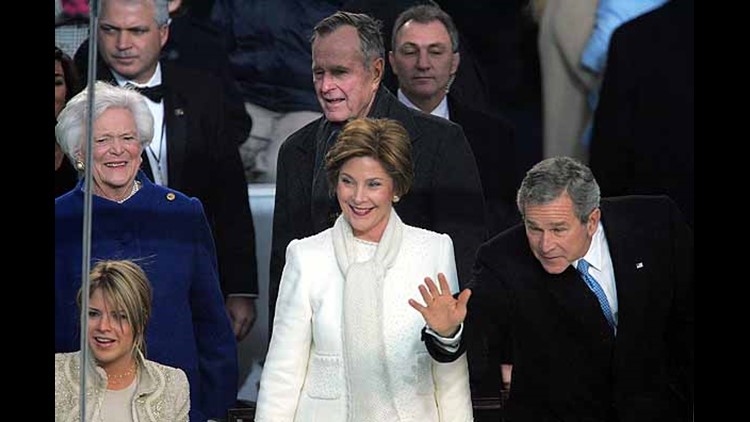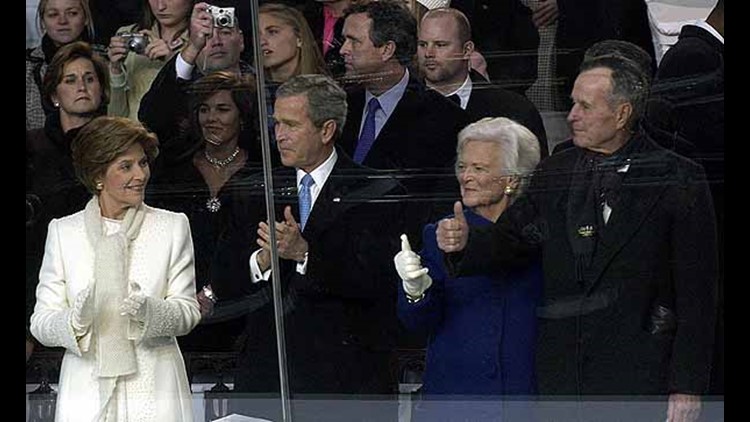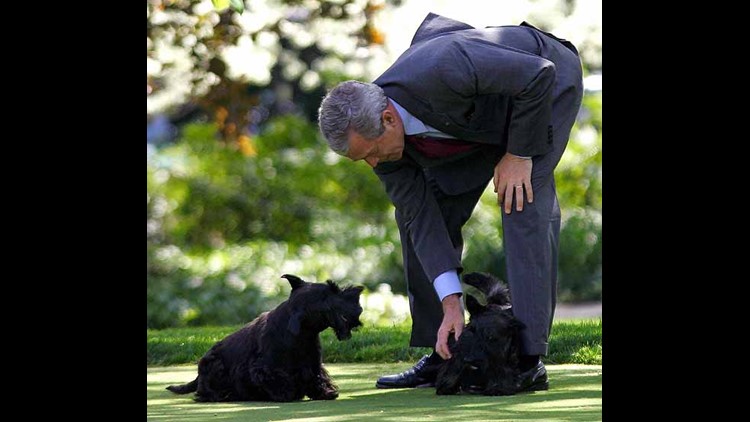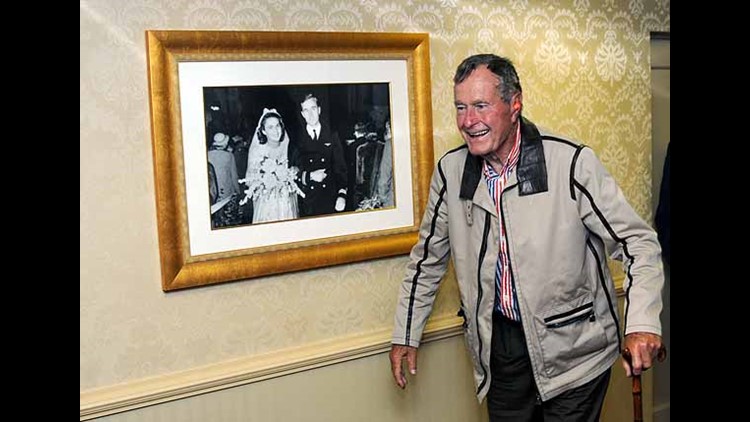CHINCOTEAGUE, Va. (Delmarva Now) — George Herbert Walker Bush, former president of the United States who got the country through the end of the cold war, died Friday evening. He was 94.
He is best known for his political career, spanning multiple roles in the White House and across the world, but he started his career as a member of the U.S. Navy during World War II. Commissioned as an ensign on June 9, 1943, at just shy of the age of 19, he was the youngest naval aviator at the time.
Bush was stationed at Naval Air Station Fort Lauderdale, Florida, for the first two months and NAS Norfolk, Virginia, from August to September. He was assigned to Torpedo Squadron (YT-51) and was briefly stationed at the Chincoteague Naval Auxiliary Air Station on Wallops Main Base from October to December 1943.
"Chincoteague is a very quaint little oyster town — very small and populated by colorful characters," Bush wrote in a letter home to his family. "It is great sport to go speeding down at about 20' and scare the fisherman who are out a-digging' for ersters' (they really pronounce 'em like that)."
Oysters, the "Chinco" base and bad Navy food
Bush details trips with friends up to Pocomoke, where he ate an "all oyster dinner." He described Pocomoke and Salisbury as the main liberty towns, although he wrote in the letters he planned "to make every effort to get up to N.Y. some weekend soon."
The base, which is now the home of NASA's Wallops Flight Facility where copies of Bush's letters can be seen, was small, informal and friendly, and he loved it.
"No Ties, caps or salutes," Bush wrote. "Just fly and sleep. It is a real healthy life except for the miserable food."
The man who would go on to become the country's 41st president affectionately referred to the base as "Chinco." He wrote of sharing a room with the other officers in a room with beds, a stove in the middle and outdoor toilets. There was hot water, however, and Bush wrote that "all in all it is OK."
It surpassed his time in Norfolk, he wrote. He appreciated the oysters, calling them the best in the world, and he especially liked that "no one cares what you do as long as you appear for flights." He compared the size of Chincoteague to Kennebunkport, Maine, where his grandfather had an estate.
Photos: Bush family album
The downside, however, was the "unbelievably bad" Navy food. He refers to it as "the worst" he'd ever seen and complains only about that over the course of a few letters.
"Cold lima greasy beans," Bush wrote. "We pay $.20 a week, but it is not even worth that. It's just terrible and always has been here."
In one letter, he wrote to his father of hitting a "vicious slipstream" as he came in for a landing, sending him and his plane careening and wrecking the plane. He said he was never scared and wouldn't be in any trouble, although he was concerned it might cause his mother to "do some unnecessary worrying."
He signed his letters as "Poppy," a childhood nickname.
Causing an elephant to run loose in Crisfield over a lady
Bush's time on Delmarva wasn't only food and flights. One of his more notable tales came in 1943 when the future president started a circus stampede while trying to impress a young lady with his plane.
An elephant eventually ended up in the backyard of a resident.
Ocean City resident Wayne Cannon recalled the story on Facebook:
"He buzzed in low over her house, on Sackertown Road, in his plane several times. There was a circus playing in town, in a field next to her house, and the plane created panic among the circus animals and a number of them took off around Crisfield. One woman called the Mayor of Crisfield to report an elephant in her backyard."

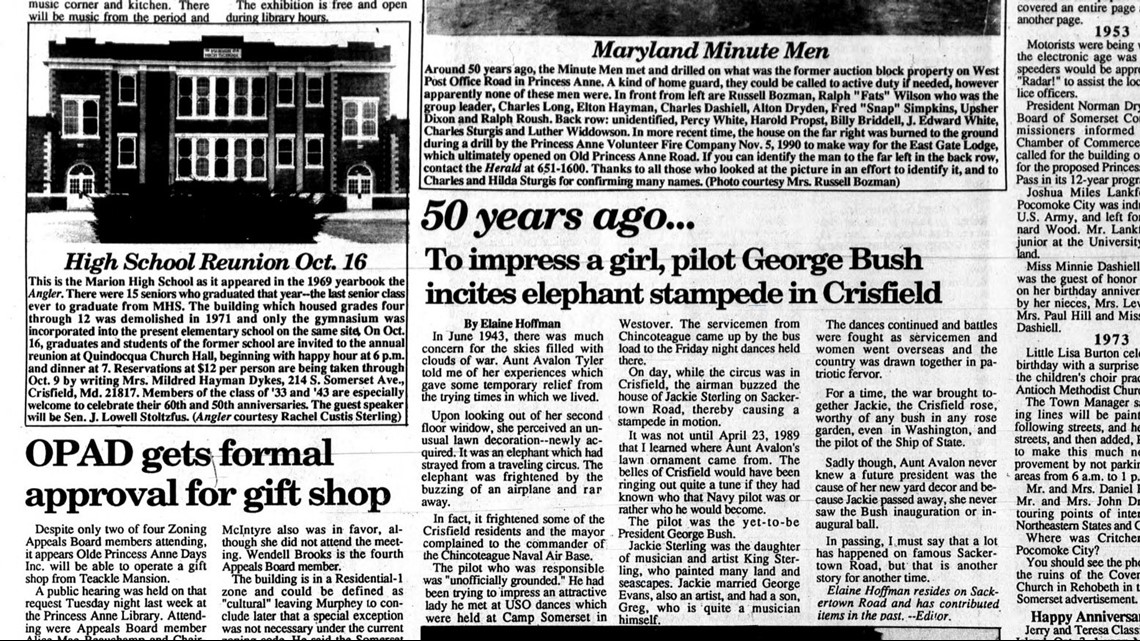
An Oct. 6, 1993 issue of the Somerset Herald recalled the event 50 years later.
Bush was reprimanded by the Navy for the incident, but he was one of many servicemen who would come up by the busload for Friday night dances held at Camp Somerset in Westover, according to Elaine Hoffman, who wrote the article.
Leaving a Bush legacy
Bush would go on to fly 58 combat missions, for which he would receive three Air Medals, the Presidential Unit Citation and the Distinguished Flying Cross. His plane was hit by anti-aircraft fire in September 1944 while he was on a bombing run in the Pacific. Bush was rescued by a submarine, but his two crew members died. Bush would later say he thought of them every day.
He was released from active duty under honorable conditions in September 1945, after the Japanese surrendered the war.
Often referred to as H.W. or '41,' Bush was a prolific member of a deeply political family. He was the son of Prescott Bush, a former senator from Connecticut, and the father of Jeb Bush, former governor of Florida, as well as George W. Bush, the 43rd president.
He was considered widely to be a pragmatic voice, a man who steered the Republican Party through the Watergate scandal and the country through the final days of the Cold War.

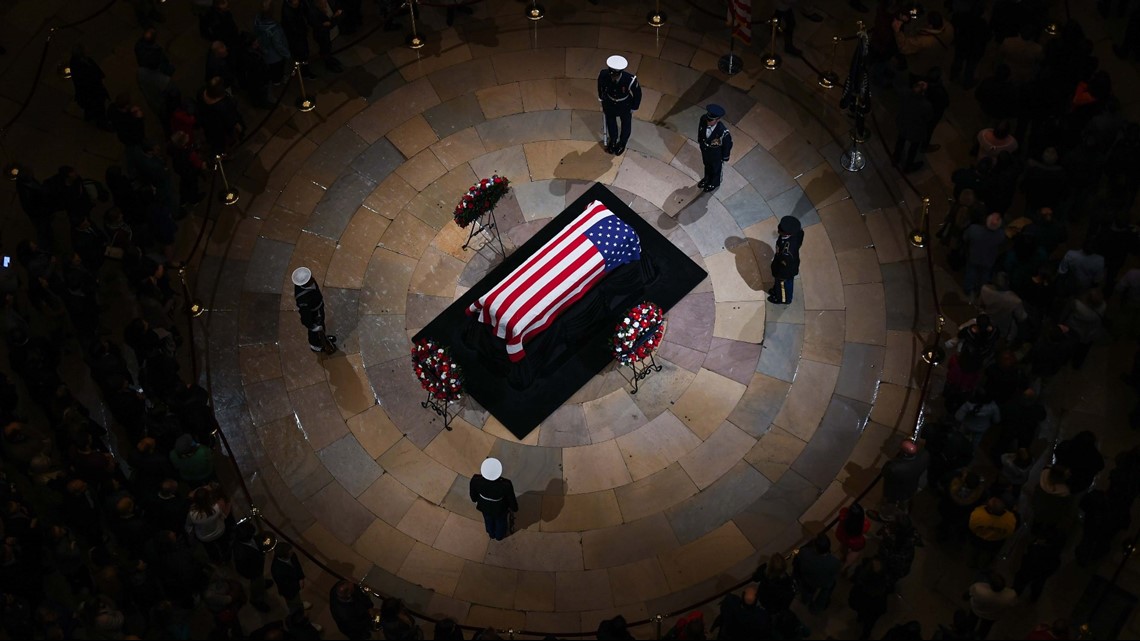
"George H.W. Bush’s lifetime of service and decades of dedication to honor and duty leave an indelible mark on our nation and on our hearts," Gov. Larry Hogan said in a statement Saturday. "He will always represent the very best America has to offer in public life: toughness with civility, firmness with kindness, and strength of conviction with force of character."
The former president was proud of his political career, but his true love was with his family. When his wife of 73 years, Barbara, died in April, he was holding her hand. Together, the two had six children: George, Robin, Jeb (whose full name is John Ellis Bush), Neil, Marvin and Doro (short for Dorothy). They had 17 grandchildren and seven great-grandchildren by the time they died.
When asked by Jenna Bush Hager, his granddaughter, what he thought of his legacy, he refused to say.
"I want somebody else to define the legacy. I’ve kind of banned the use of the L-word, legacy word,” he told her. “I think history will…point out the things I got wrong, and perhaps some of the things we did right.”
Staff writer Ryan Marshall contributed to this article.
Reach reporter Hayley Harding via email at hharding@delmarvanow.com or on Twitter @Hayley__Harding.

